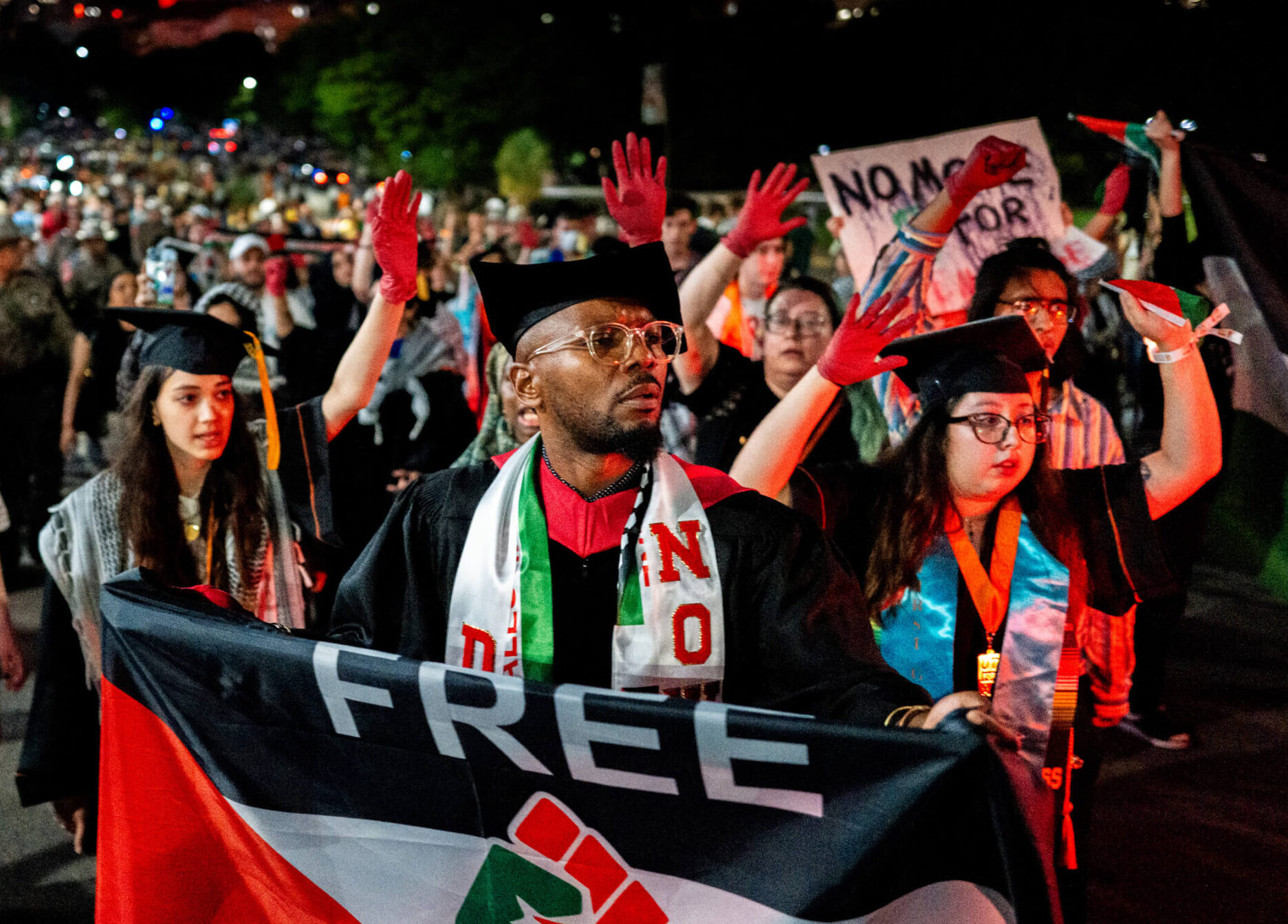What happens when a state’s ban on “diversity, equity, and inclusion” ideology (DEI) collides with a campus shaken by anti-Israel protests?
Students at the University of Texas at Austin found out. So did I: as a reporter covering these controversies for the university’s student newspaper The Texas Horn, I saw throughout the academic year how protests derailed college life and distracted students, faculty, and administrators from their core mission: education.
The storm at UT Austin was brewing for a long time. It started last year when Senate Bill 17 went into effect, banning DEI training, offices, and promotion across public Texas universities. Soon, 66 faculty members across the University of Texas system who had worked in DEI-related positions were fired, and student activists started a movement called #NotOurTexas, a play on the university’s “make it your Texas, our Texas” marketing push. Among the group’s demands were that UT Austin’s President Jay Hartzell and Texas State Senator Brandon Creighton attend a student-run “hearing”: a struggle session. Perhaps unsurprisingly, the leaders did not respond.
By the spring, the tense atmosphere was primed for protests, and Israel became the lightning rod. UT Austin was one of the first universities in the country to have widespread pro-Palestine demonstrations, and it was one of the first to bring in law enforcement too. Protesters attempted to “occupy” the campus and clashed with police twice, on April 24 and again on April 29. During the first incident, protesters tossed animal feces at police on horseback who were attempting to clear the crowd. During the second, police used flash bangs and pepper spray on demonstrators who would not comply with their instructions. Students said the scene was chaotic and frightening.
No part of UT Austin’s campus was ever successfully “occupied” because of the law enforcement response, which was called in by Hartzell and state officials. Unlike some other schools, UT Austin was not forced to cancel classes, finals, or graduation ceremonies—pro-Palestine protesters did stage a walkout at commencement, but they didn’t impede the proceedings.
Yet the campus has fundamentally changed. Students say the protests affected their studies and academic performance. Jewish students in particular are beginning to see their classmates’ intolerance as part of the school’s reputation. Some said the protests made them afraid to wear Star of David necklaces or yarmulkes in public. The Jewish campus group Longhorn Students for Israel said that protesters distributed “anti-Jew propaganda” and “flyers inciting violence” and protesters shouted antisemitic comments at Jewish students, including “F*** you Zionists” and “Go back to Germany.” Jewish centers were vandalized with antisemitic graffiti near campus, and pro-Israel demonstrations were interrupted by pro-Palestine protesters. At a protest after the commencement ceremony, protesters shouted at Jewish students, “Palestine is ours alone.” One student told The Texas Horn, “I don’t feel welcome as a Jew.”
Students are divided about the university’s response to the protests and the role law enforcement played during the protests, as well as about the suspension of the Palestine Solidarity Committee, the group that organized the protests. One set of protesters posted a statement on Instagram that claimed they were “brutalized and mistreated” by law enforcement; students who were complained they were denied “phone calls to the outside, medical and menstrual care and religious accommodations for detainees.” A member of Longhorn Students for Israel, on the other hand, said that with “the amount of police on campus . . . I felt so safe and I felt heard by my administration.”
The protests only worsened UT Austin’s reputation as being one of the worst universities in the United States for free speech and expression. The Foundation for Individual Rights and Expression (FIRE) rates UT as a “poor” school for freedom of speech; among categories that include “administrative support” (136 out of 248 colleges surveyed) and “tolerance” for liberals (102) and conservatives (74), its lowest ranking is for that of “disruptive conduct,” at a dismal 239. What concerns FIRE most about the protests seems to be the way they threaten the university’s basic ability to provide a suitable atmosphere for free inquiry.
Pro-Palestine protests are a symptom of a worsening trend across American universities, as political issues are fought literally, as well as figuratively, on college campuses. A quick look at the UT Austin protesters’ slogans revealed that many of them were also anti-police, pro-DEI, and pro-communist—chants included “Workers of the world unite!”—exposing just how deep their antagonism to America’s institutions and its history truly goes.
Universities are supposed to be forums where students and faculty alike freely pursue the truth. The disruption of campus life caused by the protests obliterates that collegiality. While students at UT Austin were able to graduate in May without major disruption, the cascading series of disturbances throughout the school year left those who came to college to learn feeling significantly less free.















